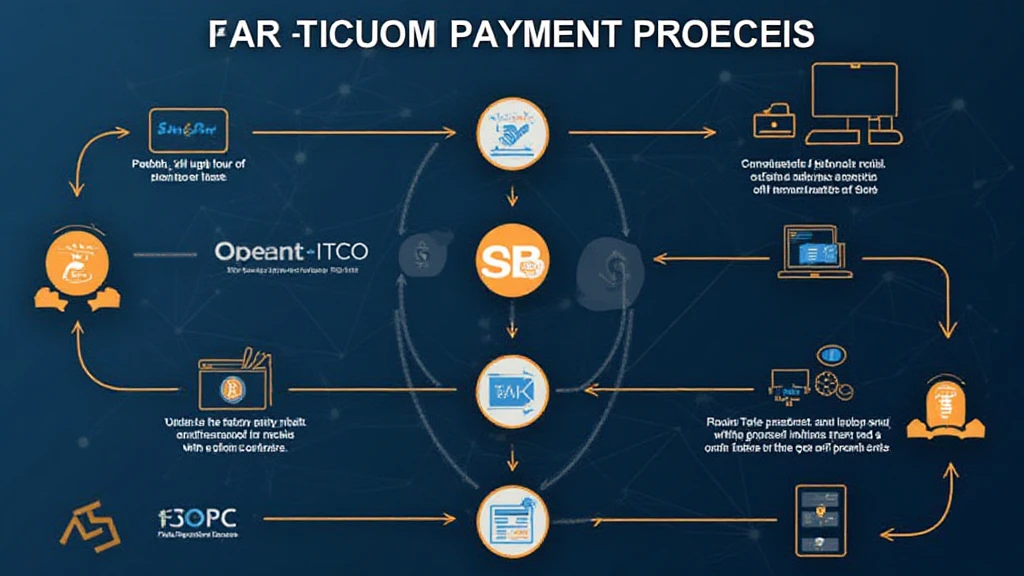Introduction
In 2023, the global cryptocurrency market witnessed a staggering increase, with over 300 million users adopting digital currencies. Yet, among these users, the effective management of transactions remains a significant challenge. With $4.1 billion lost to DeFi hacks just in 2024, companies need robust solutions to maintain secure and accurate transaction records. This article delves into Bitcoin payment reconciliation, identifying its importance, processes, and future in the crypto ecosystem.
What is Bitcoin Payment Reconciliation?
Bitcoin payment reconciliation is the process of matching and verifying Bitcoin transactions against account records to ensure accuracy and consistency. This is vital for businesses accepting Bitcoin payments, as discrepancies can lead to revenue losses, financial disputes, or regulatory issues.
- Accuracy: Ensuring that financial records accurately reflect all transactions.
- Efficiency: Streamlining the reconciliation process to save time and labor.
- Security: Safeguarding against fraud and errors that could result in loss.
The Importance of Reconciliation in Cryptocurrency Transactions
Just like a bank vault secures physical assets, reconciliation acts as a safeguard for digital assets. Given that Bitcoin operates on a decentralized network, maintaining accurate records is crucial for businesses. Here are some reasons why reconciliation is essential:

- Preventing financial discrepancies.
- Facilitating compliance with regulations in different markets.
- Building trust with clients and stakeholders.
Steps Involved in Bitcoin Payment Reconciliation
To achieve seamless Bitcoin payment reconciliation, businesses must follow a structured approach, which includes the following steps:
- Transaction Recording: All Bitcoin transactions must be documented as soon as they occur.
- Verifying Transactions: This involves checking the blockchain to ensure that transactions are valid and confirmed.
- Matching Transactions: Businesses should cross-reference their records with transaction histories obtained from their Bitcoin wallet services.
- Resolving Discrepancies: If any mismatches occur, businesses must investigate and rectify them promptly.
Challenges in Bitcoin Payment Reconciliation
Banking systems have their methods of reconciling transactions, but cryptocurrency poses unique challenges. Here are a few major issues:
- Volatility: Bitcoin’s price fluctuations can affect the perceived value of transactions.
- Lack of Standardization: Different wallets may have different formats, complicating the reconciliation process.
- Regulatory Hurdles: Adhering to varying regulations in different jurisdictions, especially in growing markets like Vietnam.
Technological Solutions for Simplifying Reconciliation
Numerous technologies can assist in Bitcoin payment reconciliation, enhancing efficiency while minimizing errors:
- Blockchain Analytics Tools: These can help track transactions and verify their authenticity.
- Automated Reconciliation Software: Tools such as Hibt.com provide automation features that can match records and flag discrepancies in real-time.
- Secure Wallet Systems: Implementing secure and reliable wallet services can also improve transaction integrity.
Case Study: Vietnam’s Growing Cryptocurrency Adoption
Vietnam’s cryptocurrency market has been expanding rapidly, with a reported user growth rate exceeding 50% year-on-year. As the country embraces digital currencies, businesses must prioritize effective Bitcoin payment reconciliation to maintain compliance and build customer trust.
For example, a local e-commerce platform that recently started accepting Bitcoin noticed discrepancies in its accounting records. Using reconciliation methods, they successfully matched their transaction records with blockchain data, increasing their financial accuracy significantly. This case highlights the necessity of robust reconciliation processes as Vietnam continues to explore blockchain technology and enhances its digital economy.
Conclusion
As the landscape of cryptocurrency continues to evolve, effective Bitcoin payment reconciliation will remain a fundamental necessity for businesses. Not only does it promote correct accounting practices, but it also reinforces security and compliance with emerging regulations, particularly in dynamic markets such as Vietnam.
Stay ahead of the curve by adopting advanced technologies and methodologies that streamline your Bitcoin transaction processes. Explore more on how to enhance your crypto operations at Hibt.com and navigate the complex world of digital assets with confidence.
Here’s to maintaining accuracy and integrity in the world of Bitcoin transactions!





